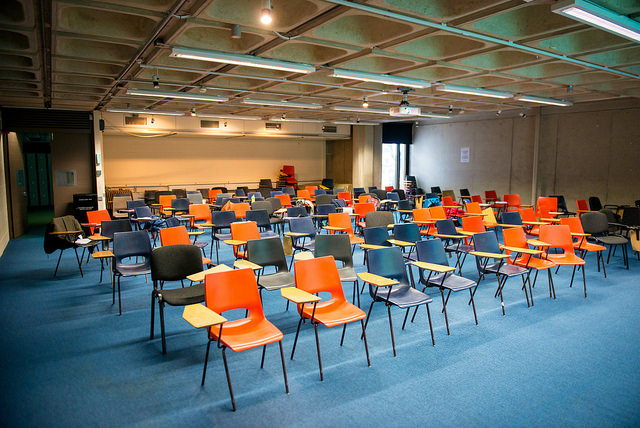A survey has revealed significant differences of opinion between staff and students regarding the continuation of digital teaching and learning practices following their implementation during the coronavirus pandemic.
Only 27 per cent of staff want to see open-book or take-home exams retained long term, but 58 per cent of students do.
According to February University Council minutes, the survey aimed to investigate the “aspects of digital TLA [teaching, learning and assessment] [that] should be retained and how staff can be supported to develop effective digital TLA approaches”.
The survey of over 2,400 students and 500 academic staff found that while 58 per cent of students supported the continuation of open-book exams, only 27 per cent of staff did.
Staff raised concerns about plagiarism and cheating taking place during open-book assessments, particularly in language exams and mathematical questions in STEM subjects. One member of staff was quoted as saying “cheating was so widespread as to practically invalidate many of our online assessments”. Another described “an online context in which academic dishonesty was endemic”.
Staff also expressed difficulties in designing open-book exams and MCQs that were “non-googleable”. It was also noted that even when staff suspected that cheating occurred “it’s impossible to substantiate even strong suspicions”.
In contrast, the report noted that students “expressed an overwhelming desire to maintain open-book assessment”. This support was strongest among undergraduate students, 65 per cent of whom were in favour of continuing the non-traditional examination methods used during the pandemic.
Students listed lower stress levels, deeper engagement with course content and the ability to utilise higher-order cognitive skills as benefits of open-book assessments. They believed that open-book assessments resulted in a “deeper understanding of the module” rather than “regurgitating meaningless information during invigilated exams”.
There was a preference among students for open-book exams with a long time window rather than open-book exams with a short time window with 92 per cent of students saying that long-window open-book exams “worked well” or “very well” compared to 79 per cent for short-window open-book exams.
Participants were also asked whether they thought teaching should continue fully on site, fully online or through a blended approach. The majority of staff and students preferred a blended approach – 66 per cent of staff and 53 per cent of students choosing this option. Postgraduate students were also more in favour of a blended approach than undergraduates.
Speaking at a University Council meeting, Academic Secretary Patricia Callaghan said that “‘blended learning’ is fast becoming the mainstay of a wide range of education offerings and Trinity needs to have the systems and staff and student supports in place to ensure that it can compete in an increasingly competitive education environment”.
When broken down by faculty, support for blended learning was strongest among health sciences staff and students and weakest among arts, humanities and social sciences staff and students, with fully on-site learning the preferred option of these students.
Both staff and students recognised increased engagement as a benefit of in-person learning but also acknowledged the flexibility that online learning provides.
Several students also opted for blended learning as it is more accessible to students with illnesses or who have children.
However, a number of students preferred in-person teaching citing isolation and mental health issues as difficulties associated with online learning. One student said: “I need the in-person interaction in order to function as a human being … This year was the worst I’ve ever been mentally and it was due to the lack of in person teaching and routine.”
In terms of online teaching practices, there was broad agreement between staff and students as to what practices were effective and ineffective. However, “Staff and students rated the effectiveness of group work during live teaching differently: while staff rated it as one of the top 3 most effective online activities, students rated it as one of the top 3 least effective.”
In addition, despite fully asynchronous or recorded lectures being the least popular method of module delivery among students, some lecturers indicated that they planned to reuse recorded lectures. With one lecturer indicating they would prefer to “free up more research time” rather than teaching.
Other notable findings include that two thirds of students had no in-person classes during the 2020/21 academic year. When this is broken down by faculty, 84 per cent of arts, humanities and social sciences students and 61 per cent of engineering, mathematics and science students had no in-person classes, with health sciences being the only faculty in which the majority of students experienced some in-person teaching.
In an email to students in August 2020, then-Provost Patrick Prendergast assured that “we are continuing to plan for as much face-to-face small group teaching and learning as possible, while adhering to the public health measures”.
Despite strong student opposition to in-person exams this year – including an open letter which garnered over 5000 signatures – the majority of students who took closed-book in-person exams last year had “a positive experience of them”.
On the basis of the survey “Council approved the development of a work programme to prioritise elements of existing teaching, learning and assessment practices that can be adapted to a digital context for implementation in 2022-23”.







